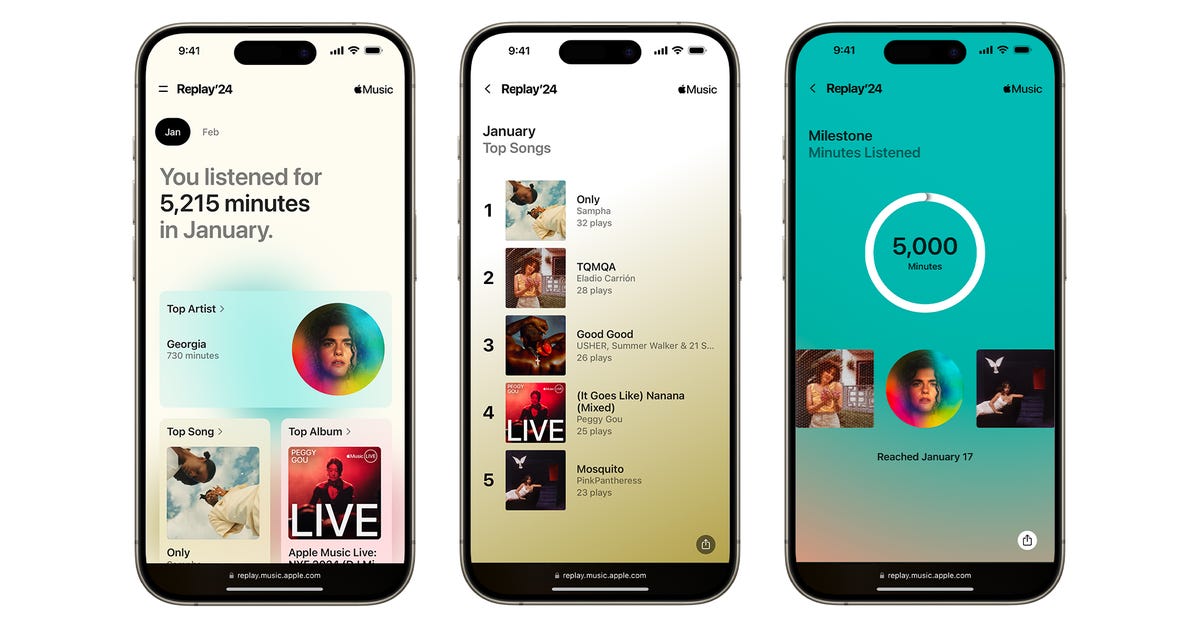Apple is in hot water in the EU. On Monday, Europe’s Competition Commission hit the company with a 1.8 billion euro ($1.95 billion) fine, after it concluded that Apple was preventing people from being told that they could pay less for music streaming services.
Currently, if you buy a subscription to a music streaming service within an iOS app, Apple will take a cut of that subscription. As a result, you’ll likely be charged the maximum price, and may be excluded from taking advantage of cheaper options that would be available outside of the app. But where the Commission takes issue with Apple’s rules is that the company prevents the streaming service you’re subscribing to from letting you know those cheaper options are available elsewhere. It also bans companies from following up with you outside of the app to let you know about cheaper alternative offers.
After a lengthy investigation, the Commission hit Apple with the fine and demanded that Apple change its rules to let streaming services inform European customers where they can buy the cheapest subscription.
“For a decade, Apple abused its dominant position in the market for the distribution of music streaming apps through the App Store,” said Competition Commissioner Margrethe Vestager. “They did so by restricting developers from informing consumers about alternative, cheaper music services available outside of the Apple ecosystem.”
The EU’s Competition Commission has a track record of issuing huge fines to Silicon Valley companies (it’s previously fined Google and Meta billions of dollars at a time), but this is the first time the regulator has come after Apple. A key part of the Commission’s job is to make sure that people across Europe aren’t in any way disadvantaged by the business maneuverings of large companies — paying more than they need to for streaming service subscriptions, for example.
Apple’s rules have been the basis of a protracted complaint by streaming service Spotify, which first raised the issue of Apple’s dominance with the Competition Commission. It believes Apple controls access to its customers through the company’s in-app purchase system, which allows Apple to take a 30% cut of these profits. As a result, it doesn’t offer the option to subscribe or upgrade to premium tiers within the app — you have to go to the website instead.
“This decision sends a powerful message,” said Spotify in a blog post following the Commission’s announcement. “No company, not even a monopoly like Apple, can wield power abusively to control how other companies interact with their customers.”
Apple’s POV
Apple, unsurprisingly, sees things very differently. The company preempted the Commission’s decision by issuing a statement and briefing reporters, including CNET, in late February on what it considers to be a cash grab by Spotify, which it says wants to make even more money through its iPhone app than it currently does, without paying anything to Apple. In Apple’s eyes, it is Spotify, not Apple, that’s the dominant player in the European music market, as its Swedish rival currently boasts over 56% of music streaming subscriptions in the region.
“We’re happy to support the success of all developers — including Spotify, which is the largest music streaming app in the world,” said an Apple spokesperson. “Spotify pays Apple nothing for the services that have helped them build, update and share their app with Apple users in 160 countries spanning the globe.”
<figure uuid="1dd5d046-7962-48cd-82a0-556f6f091068" size="large" float="none" image-caption="
Apple doesn’t just set rules about third-party apps installed on its devices, like Spotify. It also runs the Apple music streaming service.
” image-alt-text=”Three phone screens showing Apple Music’s Replay ’24 listening recap” image-filename=”apple-music-replay-2024.png” image-date-created=”2024/02/20″ image-crop=”1961×1024+0+39″ image-width=”1961″ image-height=”1102″ image-do-not-crop=”false” image-do-not-resize=”false” image-watermark=”false” lightbox=”false” edition=”us” class=”c-shortcodeImage u-clearfix c-shortcodeImage-large c-shortcodeImage-hasCaption”>

–> <!–>
Apple doesn’t just set rules about third-party apps installed on its devices, like Spotify. It also runs the Apple music streaming service.
–>The company also shared information about Spotify’s relationship with Apple, including the free developer tools and engineering support the music streaming service relies on. Apple, which has its own Apple Music streaming service, insists that Spotify has only grown so successfully because of this work, as well as the many free APIs that the streaming service takes advantage of to work seamlessly across Apple devices. Apple added that users have downloaded, re-downloaded and updated the Spotify app 119 billion times in total on iOS devices.
“Fundamentally, their complaint is about trying to get limitless access to all of Apple’s tools without paying anything for the value Apple provides,” said the company spokesperson.
Following the Competition Commission’s decision on Monday, Apple issued a blog post in which it said it plans to appeal the EU fine. It will argue that the Commission hasn’t actually found any evidence of harm to people and that Spotify is using EU rules to reinforce its dominance. “Free isn’t enough for Spotify,” the company in the blog post. “They also want to rewrite the rules of the App Store — in a way that advantages them even more.”
Spotify didn’t directly respond to Apple’s remarks. In early March, Spotify published an open letter to the EU about a separate Apple issue, complaining about the company’s plans to comply with the incoming Digital Markets Act, which involve changes to fees.
The Commission, meanwhile, is looking beyond both Apple and Spotify. What might look like a straightforward tech titan versus tech titan battle actually encompasses many more players — smaller streaming music services such as Soundcloud and Deezer, as well as midsized players such as Amazon and YouTube.
The regulator’s priority is that consumers aren’t disadvantaged by business strategies that strip them of choice or give them a worse deal. As the battle inevitably plays out in court for years to come, its ideal result is the one which provides people choice, as well as value for money.
